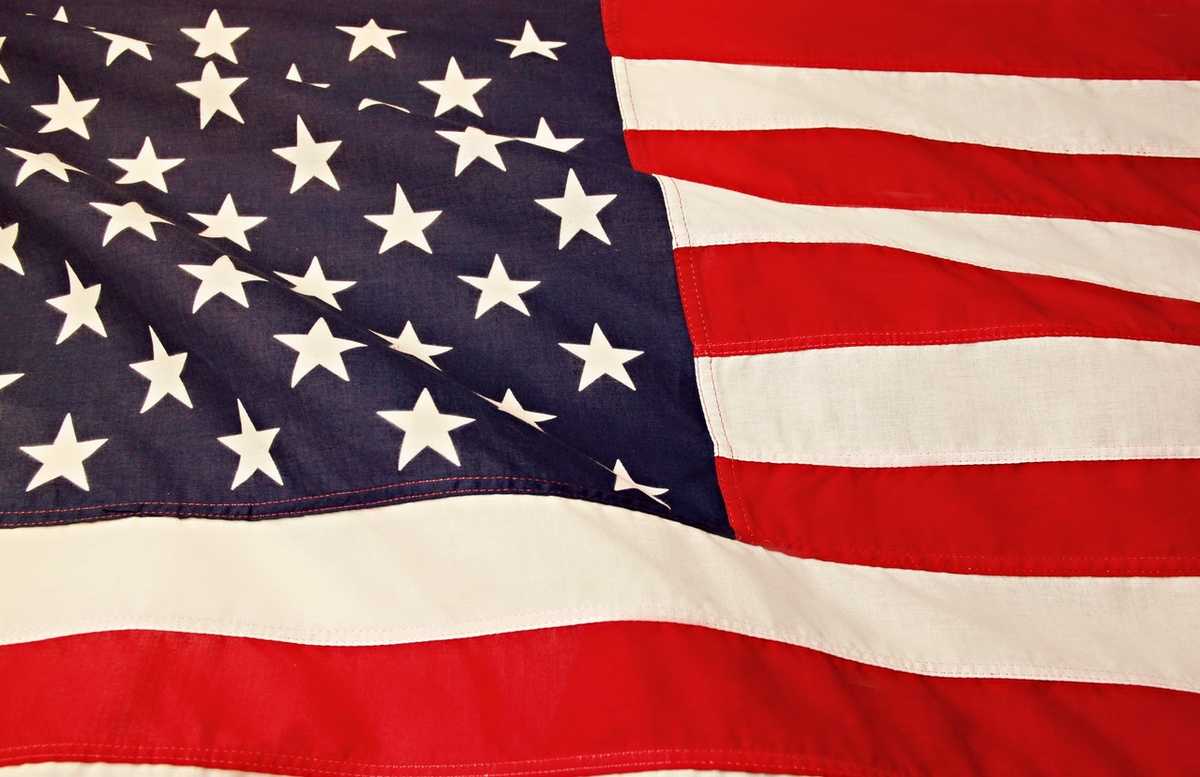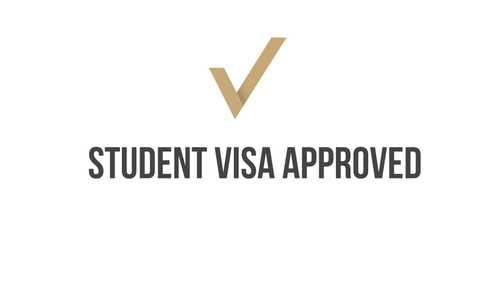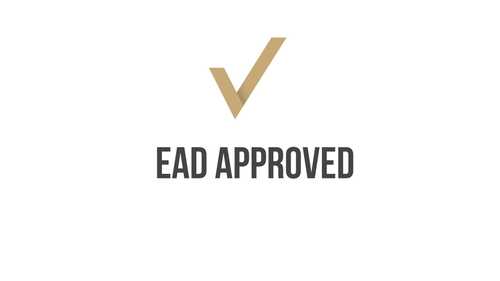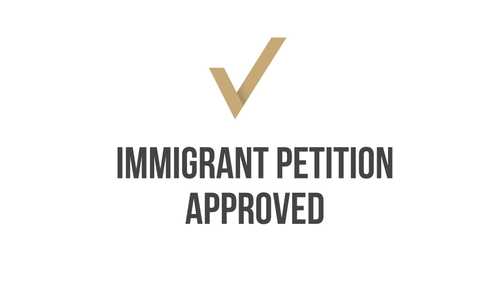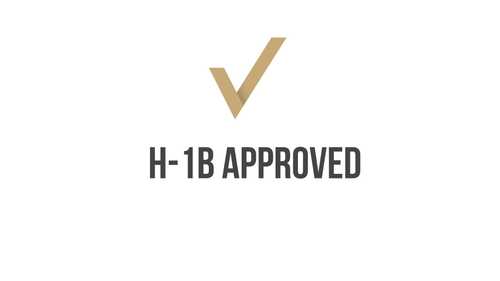

Employment-Based Immigration
Our employment-based immigration lawyers have extensive experience developing effective work visa USA and employment-based green card solutions for individuals and organizations of all sizes. Our attorneys use their substantial employment-based immigration experience to represent employers and employees from various types of organizations, including start ups, small businesses, multinational corporations, nonprofits, schools, hospitals, laboratories, and investment funds. We devise unique work visa USA sponsorship strategies for companies in a diverse range of industries, including technology, education, finance, hospitality, and healthcare, among others. Our attentive, personal approach to your case remains the same regardless of the size of your company or your industry. We will listen to your goals and help develop a customized employment-based immigration plan tailored to your and your company’s needs. Our personalised work visa USA services include:
Talk to a Lawyer
5.0-star rated company
based on 246 customer reviews on Google
Employment-Based Immigration Testimonials

Employment-Based Green Card
Employers are able to sponsor their foreign national employees for an employment-based green card. The employment-based green card grants the foreign national employee permanent residence in the United States. As a permanent resident, the employment-based green card holder may apply for US citizenship through naturalization after five years. This pathway to citizenship is one advantage of the employment-based green card over a temporary work visa USA. Employment-based green cards are split into five different categories. Our work visa USA lawyers have extensive experience with all five employment-based green card categories:
EB-1 Green Card
The employment-based first preference (EB-1) green card is reserved for foreign nationals of extraordinary ability, outstanding professors or researchers, or multinational managers or executives. The EB-1 employment-based green card category has historically not had long backlogs due to limited quotas. This makes the EB-1 green card category highly popular with qualifying foreign nationals. Our employment-based immigration attorneys have the necessary experience and know-how with the employment-based green card process to guide you through your EB-1 green card case in all three EB-1 subcategories:
Individuals of Extraordinary Ability (EB-1A)
The EB-1A employment-based green cardis reserved for foreign nationals who have risen to the very top of their field of endeavor. To qualify for an EB-1A green card, you must demonstrate extraordinary ability in the sciences, arts, education, business, or athletics and must intend to continue to work in the same field of endeavor. The EB-1A employment-based green card category does not necessarily require an employer sponsor. Our employment-based immigration lawyers have experience helping foreign nationals self-petition for a green card in the EB-1A category.
Outstanding Professors or Researchers (EB-1B)
The EB-1B outstanding professors or researchers employment-based green card is reserved for foreign professors and researchers who are internationally recognized as outstanding in their academic field. Petitions for an EB-1B employment-based green card must be filed by a US employer. Applicants for an EB-1B green card cannot self-sponsor. Both the US employer and the foreign national applicant must meet specific requirements in order for an EB-1B petition to be successful. Our work visa USA team understands the employment-based green card process and has the requisite experience to advise both US employers and foreign professors or researchers on the best EB-1B green card strategy for their case.
Multinational Managers and Executives (EB-1C)
The EB-1C employment-based green card is reserved for multinational managers and executives. To qualify for an EB-1C green card, the foreign national applicant must have been employed abroad at a qualifying affiliated entity and been transferred to the United States to work in a managerial or executive capacity. Although the EB-1C green card requires a US employer sponsor, it is also an effective green card strategy for foreign entrepreneurs who have started a US business on an L-1 visa. Our employment-based immigration lawyers understand how to apply for work visa in USA and have helped numerous foreign executives and managers through the EB-1C green card process. We can help devise a custom-tailored employment-based green card strategy for your case.
EB-2 Green Card
The EB-2 employment-based green card is reserved for applicants with advanced degrees, exceptional ability, or those whose work is in the national interest of the United States. The EB-2 employment-based green card is a popular option among foreign nationals because the green card backlogs in this category tend to be shorter than those in the EB-3 category. Moreover, the national interest waiver option allows foreign nationals to self-petition for an employment-based green card without the need for a US employer sponsor. Our attorneys understand work visa USA sponsorship and guide US employers and their employees through the EB-2 green card process.
Advanced Degree
To qualify for an Advanced Degree EB-2 employment-based green card, the position for which you are being sponsored must require an advanced degree. Also, you must hold an advanced degree or, alternatively, hold a bachelor’s degree and have five years of progressive work experience in the field.
Exceptional Ability
To qualify for an Exceptional Ability EB-2 employment-based green card, you must be able to show exceptional ability in the sciences, arts, or business. Exceptional ability is defined as “a degree of expertise significantly above that ordinarily encountered in the sciences, arts, or business.”
National Interest Waiver
The National Interest Waiver allows qualifying applicants to self-petition for an EB-2 employment-based green card. To qualify for a National Interest Waiver, your proposed endeavor in the United States must be of both substantial merit and of national importance. You must demonstrate that you are well-positioned to advance the proposed endeavor and that it would be beneficial to the United States to waive the labor certification and job offer requirements of EB-2 green cards.
Generally, a National Interest Waiver is granted to individuals who can demonstrate exceptional ability in the sciences, arts, or business. Our work visa USA team has helped professionals in various fields obtain a National Interest Waiver EB-2 employment-based green card.
EB-3 Green Card
The EB-3 employment-based third preference green card category is reserved for skilled and unskilled workers as well as professionals who do not meet the requirements of the EB-2 category. Skilled workers are those whose position requires at least two years of work experience or job related training. Professionals are those who hold a bachelor’s degree and whose position requires a bachelor’s degree. The unskilled workers, or other workers, category includes all workers who cannot be classified into any of the other EB-3 categories. All EB-3 green card petitions must first go through the PERM labor certification process. Our employment-based immigration lawyers understand the employment-based green card process and have successfully represented numerous US employers and foreign national employees in their EB-3 green card petition.
PERM Labor Certification Process
All employment-based green card petitions in the EB-2 and EB-3 category, except those that qualify for a National Interest Waiver, must first go through the PERM labor certification process. The PERM labor certificationis the first step in obtaining an employment-based green card in the EB-2 and EB-3 categories. Before a US employer can file a petition for an employment-based green card for a foreign national employee, the employer must first be granted a labor certification from the US Department of Labor. The employer must undergo a strict recruitment process and must demonstrate to the Department of Labor that it could not find able, willing, qualified, and available US workers for the position offered to the foreign national. Only after the labor certification is obtained from the Department of Labor, can the employer file an employment-based green card petition with USCIS. Our lawyers understand the work visa USA sponsorship process and have the necessary experience and know-how to help your organization through the PERM labor certification process, including the PERM Audit process, for both EB-2 and EB-3 green card cases.
EB-4 Green Card
The EB-4 employment-based fourth preference green card is reserved for special immigrants. The EB-4 employment-based green card category includes a broad range of candidates, including religious workers and retired officers or employees of international organizations in G-4 status or NATO-6 status. Although many EB-4 green card petitions are filed by employers, the EB-4 green card category allows foreign nationals to self-petition. Our employment-based immigration lawyers understand the EB-4 employment-based green card process and can guide you through your EB-4 green card petition.
EB-5 Green Card
The EB-5 employment-based fifth preference green card is reserved for foreign investorswho make a significant investment in a US commercial enterprise. The EB-5 green card is an excellent way for foreign nationals with significant financial resources to obtain a green card through investment. If you do not have a U.S. employer who can sponsor you for an employment-based green card or you are unable to self-petition for a green card, the EB-5 green card may be the best option for you to obtain permanent residence in the United States. The EB-5 green card is also a good immigration solution for foreign entrepreneurs whose startup business requires substantial capital investment and over 10 full-time US workers. Our employment-based immigration lawyers have the experience and know-how to help you obtain an EB-5 employment-based green card.

Work Visa USA
The United States provides several work visa USA options for organizations who wish to employ foreign national workers. Our employment-based immigration team can help your organization meet its growth and talent goals by sponsoring a temporary work visa USA for your foreign national employees, including local hires, intracompany transfers, temporary or seasonal workers, or foreign trainees, among others. Our attorneys understand how to get a working visa for USA and can guide you through the work visa USA sponsorship process. A work visa USA is different from an employment-based green card. A work visa has a temporary duration and limits the employment activities in which the visa holder may engage. In contrast, the employment-based green card provides the holder with permanent residence with unlimited lawful employment opportunities. Our attorneys have a thorough understanding of the work visa USA process and have helped numerous organizations sponsor their foreign national employees for all available work visas in the United States:
Professional Work Visa USA
Our employment-based immigration lawyers have guided organizations in various industries and of various sizes through the professional work visa USA process. Our immigration attorneys understand work visa USA sponsorship and can devise a custom-tailored immigration strategy for your organization. Our lawyers have extensive experience with all professional work visa categories:
H-1B Specialty Occupation Work Visa USA
The H-1B visais reserved for foreign nationals working in a specialty occupation requiring at least a bachelor’s degree, such as engineers, teachers, scientists, financial analysts, among others. The H-1B is a temporary work visa USA with an initial period of stay up to three years which can be extended for an additional three year period. A foreign national in H-1B status may only work for the H-1B sponsor employer. An H-1B worker’s immediate family members, spouses and unmarried children under the age of 21, may qualify for an H-4 dependent visa which will allow them to accompany the principal H-1B worker to the United States. Because the H-1B is a dual intent visa, it is a great work visa USA option for employer’s wishing to start the employment-based green card process for a foreign worker.
Each year the government issues a maximum of 85,000 H-1B visas. Because the H-1B is often the first choice visa for those wondering how to get a working visa for USA, there are significantly more applications than H-1B visas available each year. The annual H-1B lottery determines which applications are selected by USCIS for processing. Our employment-based immigration attorneys have helped numerous organizations through the H-1B petition and H-1B lottery registration process. A niche practice of our law firm is helping organizations establish cap-exempt status with USCIS which allows them to file H-1B petitions that are not counted against the annual limit and can bypass the H-1B lottery. In addition to our extensive professional experience with the H-1B temporary work visa USA process, we also understand the personal benefits of the H-1B visa since our principal attorney, Adrian Pandev, held an H-4 dependent visa for many years.
H-1B1 Chilean & Singaporean Specialty Occupation Work Visa USA
The H-1B1 work visa USA originates from the Free Trade Agreements between the United States and Chile and Singapore. The H-1B1 work visa USA program allows up to 1,400 Chilean and 5,400 Singaporean specialty workers to obtain a US work visa each year. Similarly to the H-1B, the H-1B1 visa is reversed for those working in a specialty occupation requiring at least a bachelor’s degree. Because only a limited number of H-1B1 visa applications are filed each year, the annual limit on H-1B1 visa issuance has never been reached. This makes the H-1B1 the preferred visa choice for specialty workers from Chile and Singapore.
Another advantage of the H-1B1 visa is that the applicant can directly apply for the visa with a US consulate without the need to obtain prior USCIS approval. Similarly to the H-1B visa, the employer will have to obtain a certified Labor Condition Application from the US Department of Labor as part of the H-1B1 work visa USA process. Immediate relatives, spouses and unmarried children under the age of 21, may accompany the H-1B1 principal to the United States in H-4 dependent status. Our employment-based immigration lawyers have experience with H-1B1 work visa USA sponsorship and can help your organization incorporate the H-1B1 visa in your immigration strategy.
E-3 Australian Specialty Occupation Work Visa USA
E-3 work visa USA is reserved for Australian nationals working in a specialty occupation requiring at least a bachelor’s degree. The E-3 temporary work visa USA program allows up to 10,500 Australian specialty workers to obtain a US work visa each year. Since the E-3 visa is only available to Australian nationals, the annual E-3 visa cap of 10,500 visas has never been reached. Similarly to the H-1B visa process, the E-3 sponsoring company must obtain a certified Labor Condition Application from the US Department of Labor.
A major advantage of the E-3 visa is that the applicant does not need to file a separate petition with USCIS and can, instead, directly apply for the E-3 visa with a US consulate or embassy. The E-3 principal beneficiary’s immediate relatives, spouses and unmarried children under the age of 21, may apply for E-3 dependent status to accompany the principal to the United States. Our employment-based immigration team understands how to get a working visa for USA and can help your organization sponsor Australian specialty workers for an E-3 visa.
TN Canadian & Mexican Professional Work Visa USA
The TN visa is reserved for certain Canadian and Mexican professionals who are seeking temporary employment in the United States. The TN visa was created as a part of the United States-Mexico-Canada Agreement (USMCA), which substituted the North American Free Trade Agreement (NAFTA). To be eligible for a TN work visa USA, you must be (1) a Canadian or Mexican Citizen, (2) a professional worker specializing in one of the enumerated USMCA/NAFTA professions, and (3) have a valid job offer from a US employer to work in your profession. The TN beneficiary’s immediate relatives, spouses and children under the age of 21, may apply for a dependent TD visa to accompany the TN beneficiary to the United States.
Canadian TN applicants are visa exempt and apply for admission in TN status at an airport or land border port of entry with US Customs and Border Protection. Mexican TN applicants must apply for a TN visa at US consulate or embassy. Our employment-based immigration lawyers have extensive experience with the TN work visa USA process. Our principal attorney, Adrian Pandev, also understands the personal benefits of the TN visa since he held a TD visa in the past.
R-1 Religious Occupation Work Visa USA
The R-1 visa is a temporary work visa USA reserved for religious workers in the United States. In addition to members of the clergy, other religious workers, such as missionaries, cantors, and workers in religious healthcare facilities, are eligible for an R-1 visa. Individuals working for a religious organization in a nonreligious function, such as janitors, clerks, volunteers, or maintenance workers do not qualify for an R-1 visa. The R-1 work visa USA is initially issued for up to 30 months and may be extended for a maximum stay of five years. Spouses and unmarried children under 21 of an R-1 visa holder may apply for a dependent R-2 visa.
Employer’s who would like to start the employment-based green card process for their foreign religious worker could consider the EB-4 green card. The EB-4 employment-based green card category has a subcategory for religious workers for which an R-1 visa holder may be eligible. Our attorneys understand how to get a working visa for USA and can guide your organization through the R-1 work visa sponsorship process.
Intracompany Transfer Work Visa USA
Certain work visa USA solutions are ideal for companies seeking to transfer employees from their foreign business to their US operations. We regularly represent foreign companies in opening a new subsidiary in the United States and transferring key foreign employees to the US enterprise. Our employment-based immigration attorneys have a thorough understanding of work visa USA sponsorship for intracompany transfers and can develop a custom-tailored strategy for your organization. We always focus on your organization’s goals and strive to develop a comprehensive employment-based immigration strategy that meets your needs. Our attorneys are highly experienced with all intracompany transfer work visas:
L-1A Work Visa USA for Managers or Executives
The L-1A work visa is a great solution if you wish to transfer an executive or manager from your foreign company to your US operations. To qualify for an L-1A visa, you will have to demonstrate that the foreign and US companies share ownership. You will also have to show that the employee being transferred was employed in an executive or managerial capacity at the foreign entity for at least one out of the past three years and will be working in an executive or managerial capacity in the United States. The L-1A is a temporary work visa USA which is initially issued for three years and can be extended for a maximum of seven years. An L-1A worker’s immediate family members, spouses and unmarried children under the age of 21, may qualify for an L-2 dependent visa which will allow them to accompany the L-1A transferee to the United States. Spouses in L-2 status are eligible for employment authorization in the United States.
Although the L-1A visa generally requires a US employer, it is also an effective work visa USA solution for foreign entrepreneurs who have opened a new office in the United States. Moreover, the L-1A is a dual intent visa which makes it a great work visa USA option for employer’s wishing to start the employment-based green card process for a foreign worker. The EB-1C employment-based green card category is specifically designed for multinational executives and has similar requirements to the L-1A visa. Our employment-based immigration lawyers understand how to apply for work visa in USA and have helped numerous foreign executives and managers through the L-1A visa process. We can help devise a custom-tailored work visa USA strategy for your multinational executive or manager case.
L-1B Work Visa USA for Specialized Knowledge Workers
The L-1B visa is a great work visa USA solution if you wish to transfer employees with specialized knowledge from your foreign business to your US operations. Specialized knowledge is defined as special knowledge about the sponsoring organization’s products, services, research, equipment, or proprietary processes. Similarly to the L-1A, you must demonstrate that the employee being transferred was employed in a specialized capacity at the foreign entity for at least one out of the past three years and will be working in a specialized capacity in the United States. The L-1B is a temporary work visa USA. It is initially issued for three years and can be extended for a maximum of five years. The L-1B visa holder’s immediate family members, spouses and dependent children under the age of 21, may qualify for an L-2 dependent visa to accompany the L-1B principal beneficiary to the United States. Our employment-based immigration lawyers have significant experience with the L-1B visa process, including cases in which the specialized nature of the position is not immediately apparent and requires additional documentation. The spouse of an L-1B visa holder who is in valid L-2 status is eligible for employment authorization in the United States.
L-1 Visa Blanket Work Visa USA
An approved L-1 blanket petition allows organizations to directly apply for an L-1 visa at a US consulate or embassy for their transferees without the need to file a separate L-1 petition with USCIS for each L-1 case. To be eligible for an L-1 blanket petition, your organization (1) must have been doing business in the United States for at least one year and have an office in the United States; (2) must be engaged in commercial trade or services and have three or more foreign or domestic branches, subsidiaries, or affiliates; (3) must have either $25 million in US annual sales, a US workforce of at least 1,000 employees, or had at least ten individual L-1 petitions approved in the past 12 months. The blanket L-1 visa applicant must meet all requirements for an L-1A or L-1B visa, including having been employed with the foreign entity for at least one out of the past three years. Our employment-based immigration team understands the L-1 blanket petition process and the work visa USA sponsorship options. We can advise your organization on whether your organization qualifies for an L-1 blanket petition and whether there is a benefit of including this work visa USA option in your organization’s immigration strategy.
E-2 Treaty Investor Work Visa USA
The E-2 visa great solution for transferring foreign employees to an organization’s US operations. To be eligible for an E-2 visa, a treaty country individual or entitymust make a substantial investmentin a US enterprise. This US enterprise may thereafter sponsor a temporary E-2 work visa USA for foreign employees who are citizens of the same treaty country. The E-2 employees must work in either an executive or supervisory role or have specialized skills that make them essential to the US enterprise. The E-2 visa is a great employment-based immigration solution for both small and large organizations alike because it does not requirea minimum investment ammount. E-2 visas are issued for a validity period of up to five years depending on the applicant’s country of nationality. The E-2 work visa USA may be extended indefinitely, which is an advantage of the E-2 visa over the L-1. Immediate relatives, spouses and children under the age of 21, of E-2 visa applicants may apply for an E-2 dependent visa. A spouse in E-2 dependent status is eligible for employment authorization in the United States. The EB-1C employment-based green card is often a viable option for executives or managers in E-2 status that wish to start the employment-based green card process. Our employment-based immigration lawyers understand how to get a working visa for USA and can help your organization sponsor qualifying employees for an E-2 visa.
E-1 Treaty Trader Work Visa USA
The E-1 visa is reserved for treaty country enterprises that engage in substantial trade with the treaty country. If a US enterprise is owned by an individual or entity that is a citizen of a treaty country and the US enterprise engages in substantial trade with the treaty country, then the US enterprise may sponsor citizens of the treaty country for an E-1 visa. The E-1 worker must be employed in an executive or supervisory position or possess skills that are essential to the operation of the US enterprise. The E-1 is a temporary work visa USA which may be issued for up to five years depending on the applicant’s nationality. The E-1 visa may be extended indefinitely. The spouse and unmarried children under the age of 21 of an E-1 visa holder may apply for an E-1 dependent visa. A spouse in E-1 dependent status is eligible for work authorization in the United States.
Organizations are generally permitted to start the employment-based green card process for their E-1 employees. If you are in E-1 status and work in an executive or managerial capacity, the EB-1C employment-based green card may be an attractive employment-based green card solution for your case. Our attorneys have extensive experience with the work visa USA sponsorship process and can help your organization apply for an E-1 visa.
B-1 Business Visitor Work Visa USA
The B-1 business visitor visa is a good work visa USA opportunity for people who want to enter the United States temporarily for business purposes. The B-1 visa is a nonimmigrant visa intended to be used for short business trips to the United States. To be eligible for a B-1 visa, you must demonstrate that (1) your proposed business activities in the United States are permitted in B-1 status, (2) you are entering the United States for a temporary period, and (3) you have significant ties to your home country that will ensure your departure from the United States at the end of your business trip. The following activities are permitted in B-1 status: consulting with business associates, negotiating a contract, participating in short-term training, or attending scientific, educational, professional or business conferences or conventions. Although the B-1 visa is often overlooked, it is a useful work visa USA solution for organizations wishing to bring foreign employees to the United States for a short-term, limited assignment. Our employment-based immigration lawyers understand the benefits of the B-1 visa and have the necessary experience to guide you through your B-1 temporary work visa USA application.
Athlete & Entertainer Work Visa USA
The P-1 visa is available to certain athletes and entertainers and their support staff. If you are an athlete or entertainer entering the United States to perform at one or more events, then the P-1 visa may be a good temporary work visa USA solution for you.
P-1A Athlete Work Visa USA
The P-1A temporary work visa USA category is reserved for foreign nationals entering the United States to participate in an athletic competition, either individually or as a group, at an internationally recognized level of performance. The P-1A is a temporary work visa that is issued for a maximum initial duration of five years. The P-1A visa may be extended for an additional five-year period for a maximum of ten years. Essential support personnel of a P-1A athlete, such as coaches, scouts, trainers, and other team officials, may apply for a P-1S visa to accompany the athlete or group to the United States. The spouse and unmarried children under the age of 21 of a P-1A visa holder may apply for a P-4 dependent visa. Our attorneys understand how to apply for work visa in USA and guide you through the P-1A visa application process.
P-1B Entertainment Group Work Visa USA
The P-1B work visa USA category is reserved for entertainment groups that have been established for a minimum of one year and are recognized internationally as outstanding in their discipline for a sustained and substantial period of time. You are ineligible for a P-1B visa if you are a solo artist because the P-1B visa is only available to entertainment groups. The entertainment group can vary in size from as little as two members to several hundred, such as in the case of large symphony orchestras. To qualify for a P-1B visa, you must demonstrate that at least 75 percent of all group members have been a part of the group for at least one year. It is not required that the entertainment group be foreign based. A US entertainment group that meets the 75 percent membership requirement may use the P-1B visa to sponsor a new foreign national group member.
Essential support personnel who are integral to the group’s performance may be eligible for a P-1S visa to accompany the group to the United States. Immediate relatives, such as spouses and unmarried children under the age of 21, of P-1B visa holders are eligible for a P-4 dependent visa. If you are a member of an entertainment group and wondering how to get a working visa for usa, our employment-based immigration lawyers can advise you on the right immigration strategy for your case.
Extraordinary Ability Work Visa USA
Individuals who possess extraordinary ability in their field may be eligible for an O-1 work visa USA. The O-1 visa allows foreign nationals who are at the top of their field in the arts, sciences, sports, education, business, film, or television industries to enter the United States to work in their field for an initial period of three years. Due to the similar requirements between the O-1 visa and the EB-1A employment-based green card, the O-1 is a good work visa USA option before starting the employment-based green card process. Our employment-based immigration team is experienced with all O visa categories:
O-1A Work Visa for Individuals in Business, Education, Science or Athletics
Individuals who possess extraordinary ability in business, education, science, or athletics are eligible for an O-1A work visa USA. To qualify for an O-1A visa, you must demonstrate that you have won a prestigious award, such as a Nobel Prize. Alternatively, you may qualify for an O-1A visa if you can demonstrate extraordinary ability through other evidence, such as the receipt of lesser awards in your field, membership in associations requiring outstanding achievement, published materials about you in major media publications, serving in a critical role for organizations with a distinguished reputation, or commanding a high salary compared to others in your field. Immediate family members of an O-1A visa holder may apply for an O-3 dependent visa. Dual intent is essentially allowed for O-1A visas. If carefully planned, O-1A visa holders may apply for an employment-based green card. Our employment-based immigration team has the necessary know-how to guide you through your O-1A work visa USA application.
O-1B Work Visa for Individuals in the Arts, Motion Pictures or Television
The O-1B visa is reserved for individuals with extraordinary ability in the arts, motion pictures, or television. You may show eligibility for an O-1B visa through a one-time major achievement, such as an Academy Award or Emmy Award. Alternatively, you can qualify for an O-1B visa if you can prove your extraordinary ability through other evidence, such as a lead performance in a distinguished production, major commercial or critically acclaimed successes, receiving critical reviews or media publications about your work, or commanding a high salary. Your spouse and dependent children under the age of 21 may apply for an O-3 dependent visa to accompany you to the United States in O-1B status. Beneficiaries of an O-1B work visa USA may be eligible for an EB-1A employment-based green card. Our employment-based immigration lawyers understand work visa USA sponsorship and can help develop the right O-1B strategy for your case.
O-2 Work Visa for Support Personnel of O-1
An O-2 work visa USA is issued to support personnel accompanying the O-1 principal beneficiary to the United States. The O-2 applicant’s work must be an integral component of the O-1 visa holder’s activities in the United States. To qualify for an O-2 visa, you must possess important skills and expertise that are critical to the O-1's effective performance and which cannot be readily done by a US worker. An O-2 visa holder’s spouse and unmarried children under 21 may apply for an O-3 dependent visa. Our attorneys know how to get a working visa for USA and can help guide you through the O-2 visa application process.
Temporary & Seasonal Work Visa USA
The H-2 visa is a special work visa USA category reserved for US employers who are seeking temporary and seasonal foreign workers because they cannot find qualified US applicants. Both skilled and unskilled workers may apply for an H-2 visa. The H-2 visa category is broken down into two sub categories: H-2A visa for agricultural workers and H-2B visa for non-agricultural workers. Our employment-based immigration attorneys are experienced with work visa USA sponsorship and can help your organization sponsor employees for both types of H-2 visas:
H-2A Work Visa USA for Temporary & Seasonal Agricultural Workers
The H-2A temporary work visa USA allows employers to sponsor foreign workers for temporary or seasonal agricultural work in the United States. To successfully petition for an H-2A visa, the employer must show that it could not find qualified US workers for the position. The employer has to also demonstrate the temporary nature of the position and that hiring foreign workers will not adversely affect the wages or working conditions of similarly-employed US workers. After approval of the H-2A petition, each individual H-2A worker must apply for an H-2A visa at a US consulate or embassy. The spouse and unmarried children under 21 of an H-2A visa holder may apply for an H-4 dependent visa. Our employment-based immigration lawyers can guide your organization through the H-2A agricultural work visa USA process.
H-2B Work Visa USA for Temporary & Seasonal Non-Agricultural Workers
The H-2B temporary work visa USA is used by employers to sponsor foreign employees for temporary or seasonal non-agricultural positions in the United States. To become approved to hire H-2B workers, an employer must demonstrate to the government that the position is temporary or seasonal and that the employer could not find qualified US workers for the position. Additionally, the employer must ensure that hiring foreign employees in H-2B status will not adversely affect similarly-employed US workers’ salaries or working conditions. Once the employer’s H-2B petition is approved by USCIS, each prospective H-2B employee must individually apply for an H-2B visa at a US consulate or embassy. Immediate relatives, spouses and dependent children under the age of 21, of H-2B visa holders may apply for an H-4 dependent visa. Our attorneys understand work visa USA sponsorship and can develop an effective H-2B work visa USA strategy for your organization.
Dependents of Work Visa USA Holders
Immediate family members may generally accompany the principal work visa USA beneficiary to the United States. Spouses and dependent children under the age of 21 are eligible to apply for a dependent visa and may be included as derivatives in employment-based green card applications. Our employment-based immigration team has successfully represented numerous applicants through the dependent visa application process, including cases with admissibility issues for prior visa or criminal violations. We represent individuals in all work visa USA dependent categories:
H-4 Dependent Visa
The H-4 visa is reserved for immediate relatives of H-1, H-2, and H-3 visa holders. Only spouses and unmarried children under 21 of H-1, H-2, and H-3 visa holders are eligible for an H-4 visa. The H-4 visa is generally issued for the same period as the principal beneficiary’s H work visa. Individuals in H-4 status are generally not eligible for employment authorization. Spouses of H-1B workers are eligible for employment authorization if the H-1B spouse has an approved I-140 immigrant petition or has received a one-year extension of H-1B status beyond the final sixth year based on a filed PERM labor certification. Children in H-4 status are not eligible for employment authorization. Our principal attorney, Adrian Pandev, held an H-4 visa for several years. As such, in addition to our employment-based immigration team’s extensive experience with the H-4 temporary work visa USA, we also understand the personal benefits of the H-4 visa.
E Dependent Visa
Spouses and unmarried children under 21 of E-1, E-2, and E-3 visa holders are eligible for an E dependent visa.These immediate family members may apply for an E-1, E-2, or E-3 dependent visa concurrently with the principal E visa beneficiary. Spouses in dependent E-1, E-2, or E-3 status are eligible for employment authorization. Our employment-based immigration lawyers understand how to get a working visa in USA and have guided numerous families through the E-2 dependent visa application and associated employment authorization application process.
L-2 Dependent Visa
Immediate family members of L-1 visa holders, such as spouses and unmarried children under 21, may apply for an L-2 visa. An L-2 dependent visa is generally granted for the same duration as the L-1 principal beneficiary’s visa. Spouses in L-2 status are eligible for employment authorization. Our employment-based immigration team understands work visa USA sponsorship and has represented many families through the L-2 application and L-2 employment authorization processes.
O-3 Dependent Visa
The O-3 dependent visa is reserved for the spouse and unmarried children under 21 of O-1 and O-2 visa holders who wish to accompany the primary O visa holder to the United States. An individual holding O-3 status is generally permitted to remain in the United States as long as the principal O beneficiary maintains valid O status. O-3 visa dependents are allowed to engage in full time or part-time study in the United States but are not eligible for employment authorization. Our attorneys understand how to apply for work visa in USA and can help you and your family obtain an O-3 dependent visa.
P-4 Dependent Visa
The P-4 dependent visa is available to unmarried children under the age of 21 and spouses of P-1, P-2, and P-3 visa holders. Once a child reaches the age of 21 or becomes married, she is no longer eligible for a P-4 dependent visa. Individuals in P-4 status are not eligible for employment authorization but may study in the United States. Our attorneys regularly represent clients in dependent visa applications and can advise you on the right immigration strategy for your entire family.
R-2 Dependent Visa
Immediate family members, spouses and unmarried children under 21, of R-1 visa holders may apply for an R-2 dependent visa. Spouses and children in R-2 status are not eligible for employment authorization in the United States. They may, however, engage in full time or part-time study in the United States. Our attorneys understand work visa USA sponsorship and can devise the best R-2 dependent visa strategy for your family.
Consular Processing & Change/Adjustment of Status
Our employment-based immigration attorneys have extensive experience helping clients obtain a work visa USA at a US consulate or embassy outside the United States and in filing for a nonimmigrant status or an employment-based green card inside the United States. Generally, the consular process is used by individual applicants who are outside the United States, while the change of status process is reserved for applicants who are physically present inside the United States. There are several advantages to both processes. The best strategy on whether to pursue the consular process or a change of status petition will depend on the particular circumstances of your case. Our attorneys have successfully represented clients in work visa applications at US consulates in all corners of the world. We have also helped numerous applicants through the change of status and adjustment of status processes. We have a thorough understanding of both processes and can devise the best strategy for your case regardless of whether you are applying for a work visa USA or an employment-based green card.
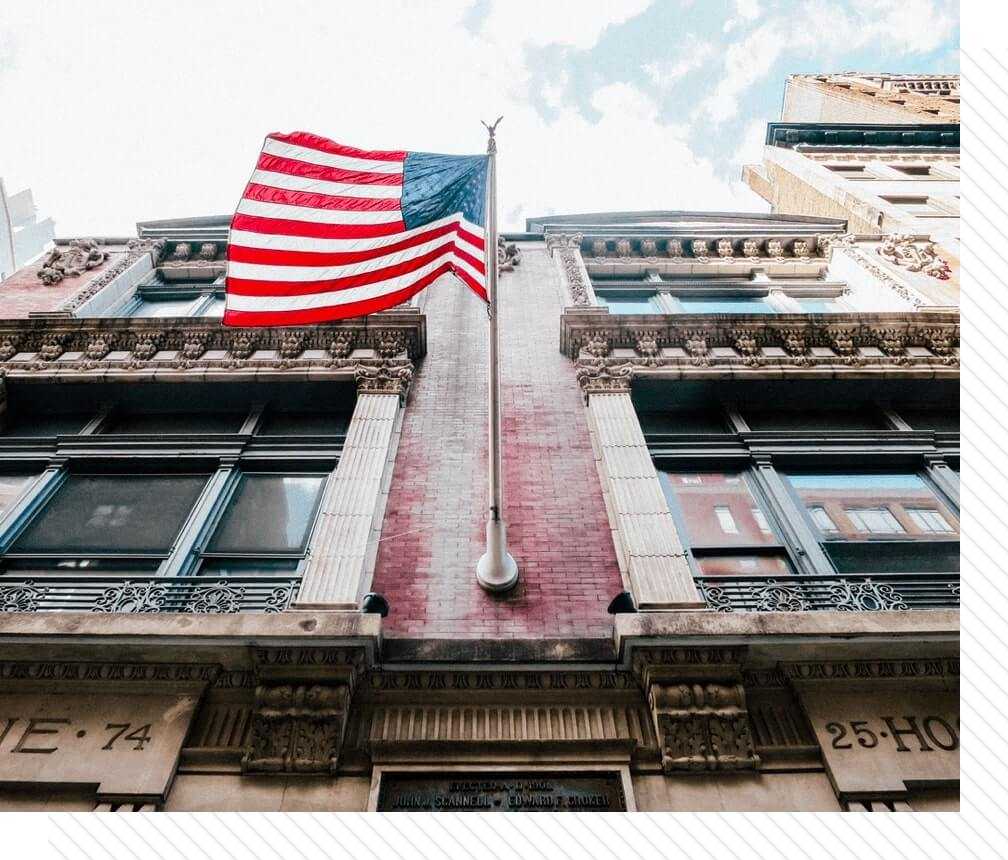
Worksite Compliance & Corporate Immigration Policy
Our experienced employment-based immigration lawyers advise organizations in the development of immigration policies that ensure compliance with all immigration laws and regulations. Our work visa USA compliance services include:
LCA Compliance
During the H-1B, H-1B1, and E-3 work visa USA petition process, an employer is required to submit a Labor Condition Application (LCA) to the US Department of Labor. In the LCA, the employer attests that it has complied with all requirements for hiring a foreign specialty occupation worker, including that it has provided notice of the LCA filing and will pay the foreign worker a wage not lower than the prevailing wage in the geographic area of employment or that paid to workers holding similar positions at the organization. Only after the US Department of Labor certifies the LCA may an H-1B, H-1B1, or E-3 work visa USA be granted. If an employer is later found to have violated the attestations made in the LCA, the employer may be sanctioned, fined, or barred from sponsoring foreign workers for a work visa in the future.
Our employment-based immigration lawyers work with organizations to develop effective LCA compliance policies and thereby limit liability. As part of our LCA compliance services, we conduct internal audits of LCA files and devise company policies that ensure ongoing compliance. We have experience training human resource personnel at proper LCA public access file retention, ensuring that all documents are properly maintained in accordance with regulations. Our attorneys have the necessary knowledge of the LCA laws and regulations to represent your organization through an LCA audit or investigation by the government.
I-9 Compliance
Our employment-based immigration attorneys develop successful organization wide I-9 compliance procedures. We conduct internal audits of I-9 records and review all relevant documents to evaluate compliance. We train and work with human resources personnel to correct any defects and ensure proper I-9 form retention. Our employment-based immigration attorneys have the necessary understanding of the laws and regulations to represent your organization through a government I-9 investigation.
E-Verify Compliance
Corporate Immigration Policy Planning
Adrian Pandev
As the principal attorney at Pandev Law, I have helped hundreds of foreign individuals and companies successfully navigate their journey to the United States. Previously, I served as Trial Attorney at the U.S. Department of Justice. Now, I represent foreign investors, founders, and high-net-worth-individuals in business, immigration, and wealth planning matters. I am an early proponent of blockchain technology and serve as strategic advisor to blockchain startups and cryptocurrency investors. Selected to the Super Lawyers New York Rising Starslist 2019-2021. Follow me on Twitter, LinkedIn, or Instagram.
Employment-Based Immigration
May 23 • 2019
USCIS Phone Service to Request Forms Will End on June 1
On June 1, 2019, USCIS will close its phone service allowing individuals to request immigration forms via telephone. Currently, individuals […]
As featured in
Pandev Law provides the following legal services
Our Locations
Copyright Pandev Law, LLC © 2025





